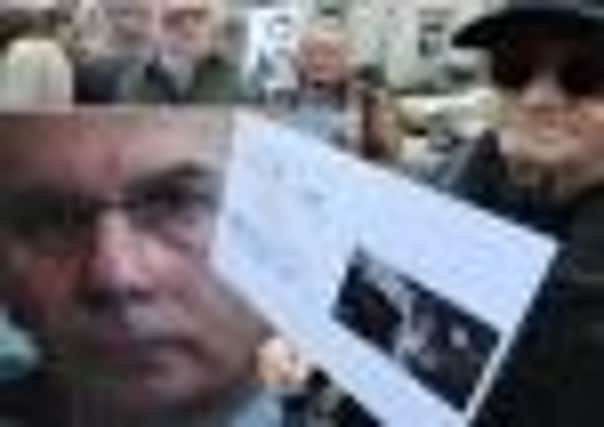Controversial rights judge finds himself in the dock


Tomorrow, Garzon goes on trial for allegedly ordering illegal wiretaps in a domestic corruption probe. A week later he appears in court to face charges he overstepped his authority in the Civil War case.
Garzon doesn’t face prison if convicted in either trial. But he can be removed from the bench for up to 20 years, which at his age – 56 – would in effect end his career as an investigating magistrate at the National Court.
Advertisement
Hide AdAdvertisement
Hide AdThe judge is separately under investigation over his dealings with a big Spanish bank.
Both sides in the Spanish Civil War – the Republicans and General Franco’s rebel right-wing forces – committed atrocities. But they were addressed by a post-Franco era amnesty approved by parliament.
The specific charge against Garzon is that he knowingly overstepped the bounds of his jurisdiction with his unprecedented, albeit abortive, probe of crimes committed by the Franco side.
Garzon, a workaholic from a modest background in Spain’s south, certainly never expected to find himself in court as a criminal suspect.
Rights advocates in Spain and abroad adore him for his pioneering cross-border justice cases, which apply the principle of universal jurisdiction – the idea that some crimes are so heinous they can be prosecuted anywhere, not just in the country where they are alleged to have been committed.
Since Garzon had Pinochet arrested in London in 1998 in an ultimately failed bid to put him on trial in Madrid, he and colleagues at the National Court have issued indictments and arrest warrants over crimes in places as Tibet and Rwanda. There’s been only one conviction – that of an Argentine “dirty war” suspect who came to Spain voluntarily to testify and ended up charged and convicted in 2005.
Spain’s decision to put Garzon on trial before the Supreme Court, said Reed Brody of Human Rights Watch, “leaves Spain open to the charge of double standards: they are willing to work for justice in so many other countries and yet at home they have problems with a judge who seeks justice.”
The second trial begins on 24 January with a session due to focus on procedural issues. It picks up again a week later, with Garzon expected to testify just that day.
Advertisement
Hide AdAdvertisement
Hide AdGarzon is arguably Spain’s most polarising figure. Even as he became the darling of human rights advocates, he’s made many enemies at home.
Conservatives deride him as a limelight addict more interested in fame and front-page photos than justice and doing things by the book.
However, even many Spanish socialists hold a grudge against Garzon over his indictment of government officials over state-financed death squads that targeted the Basque separatist group ETA in the 1980s.
Jose Antonio Martin Pallin, a judge emeritus at the supreme court, said there are many people in Spain who want a piece of Garzon – and his indictment in 2010 over the Civil War probe opened up the floodgates.